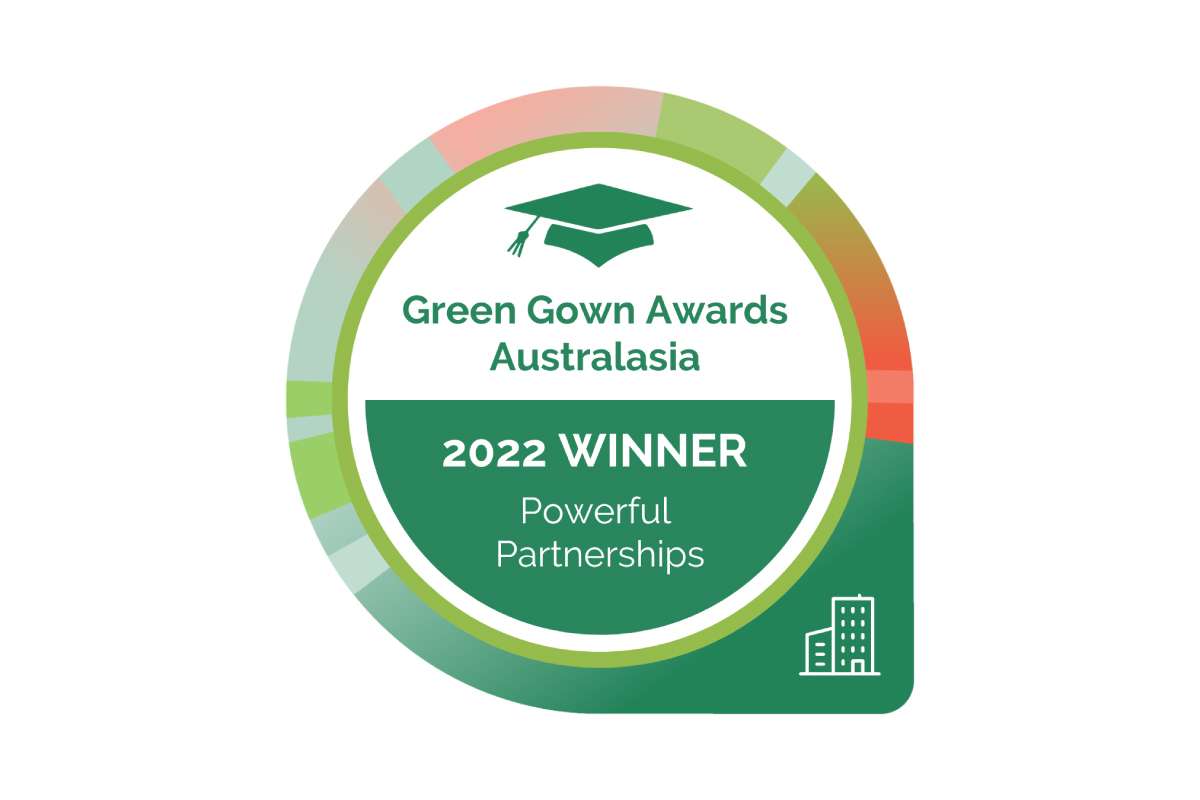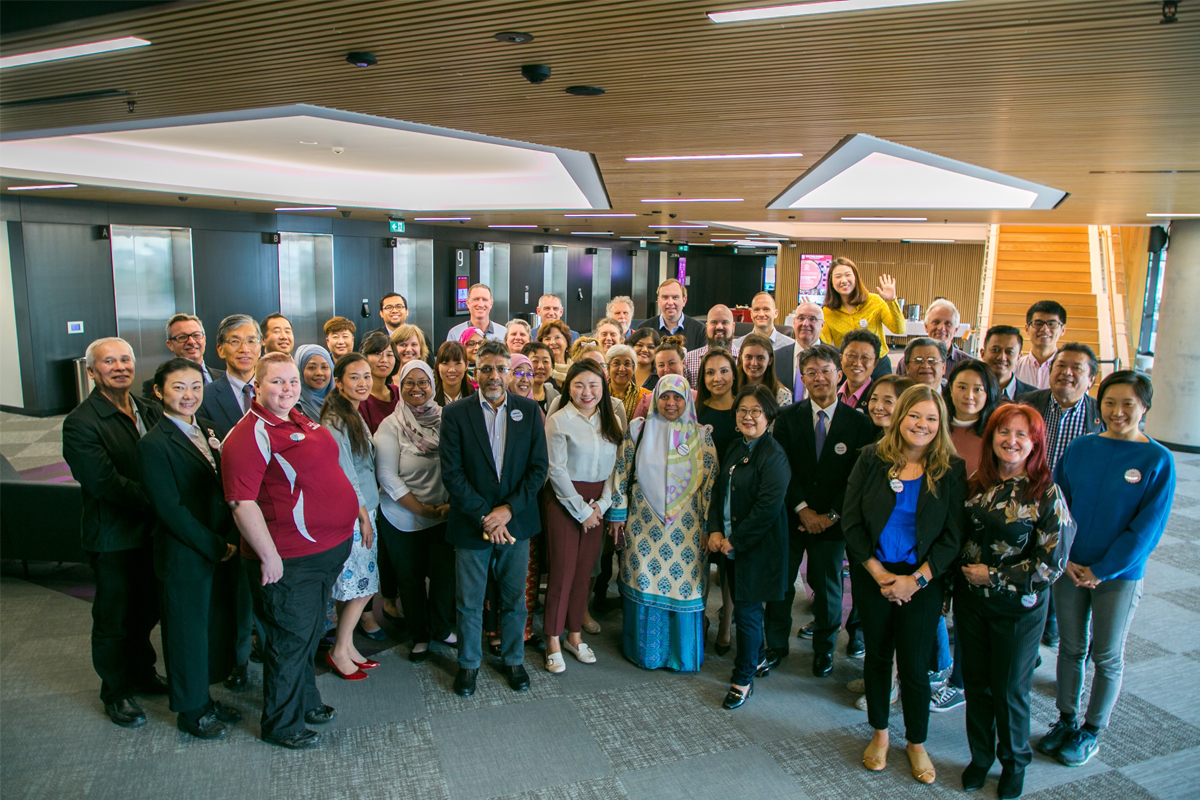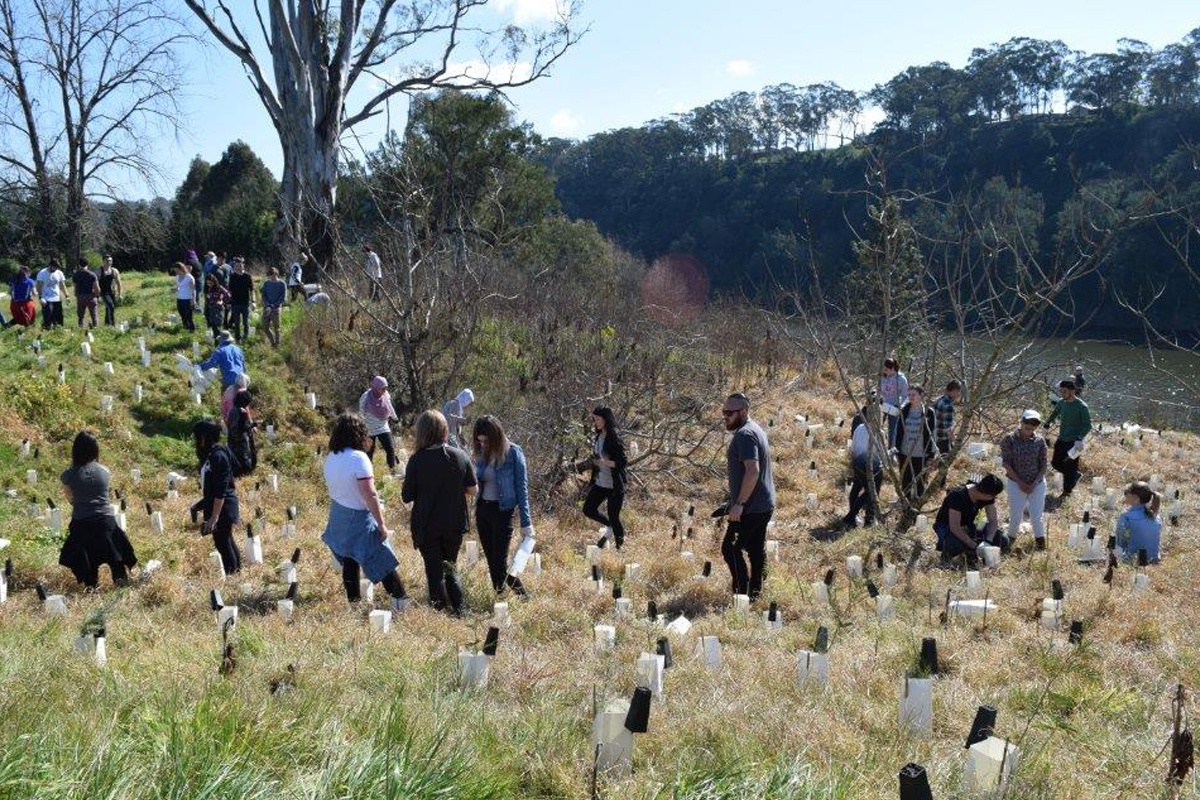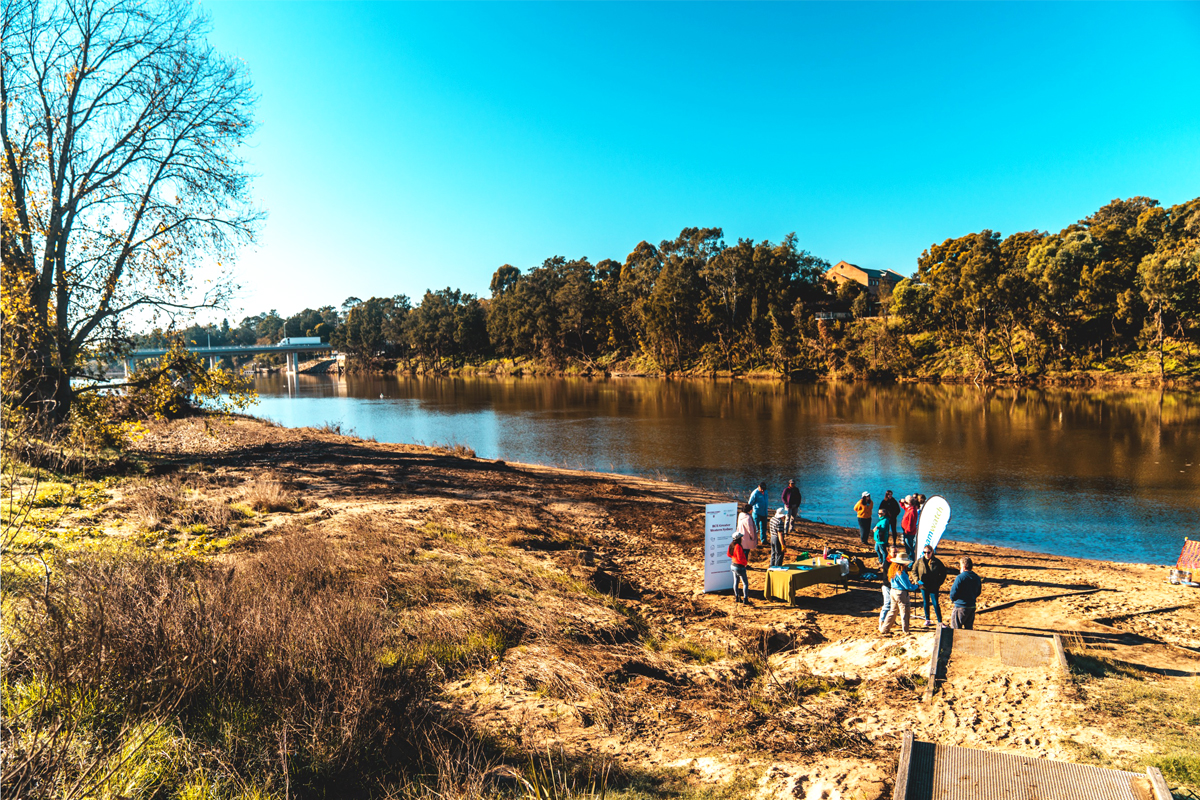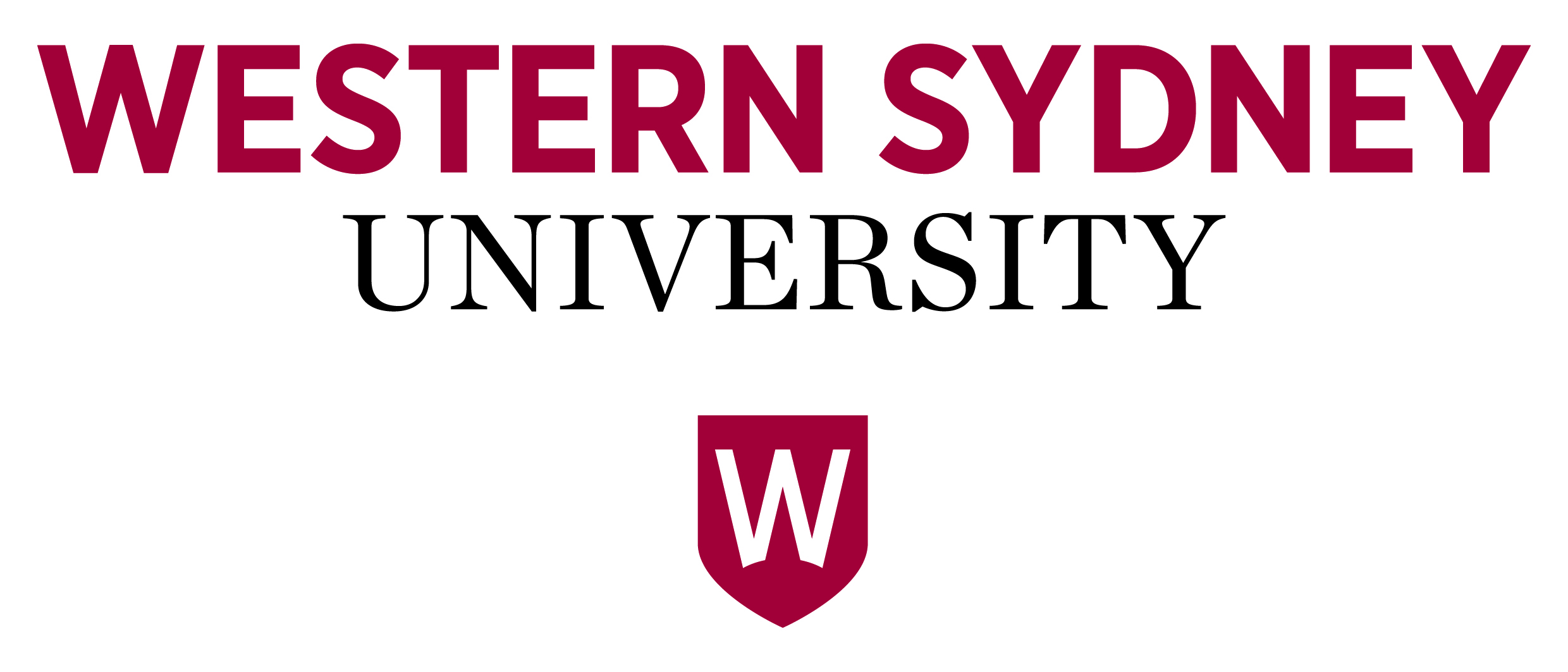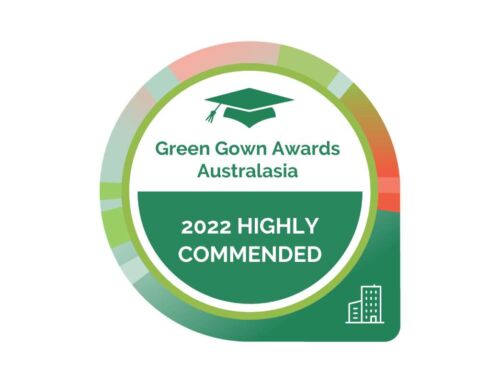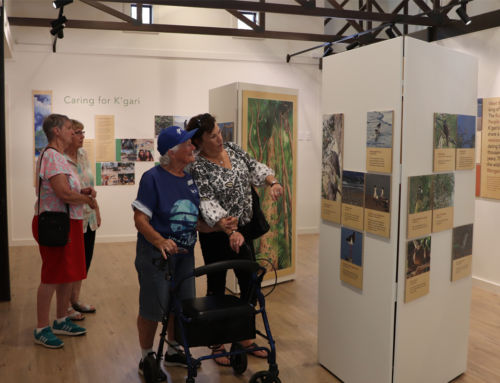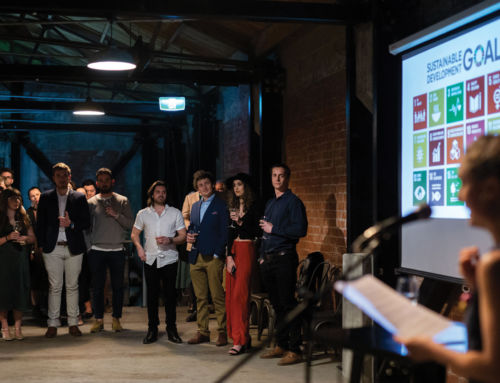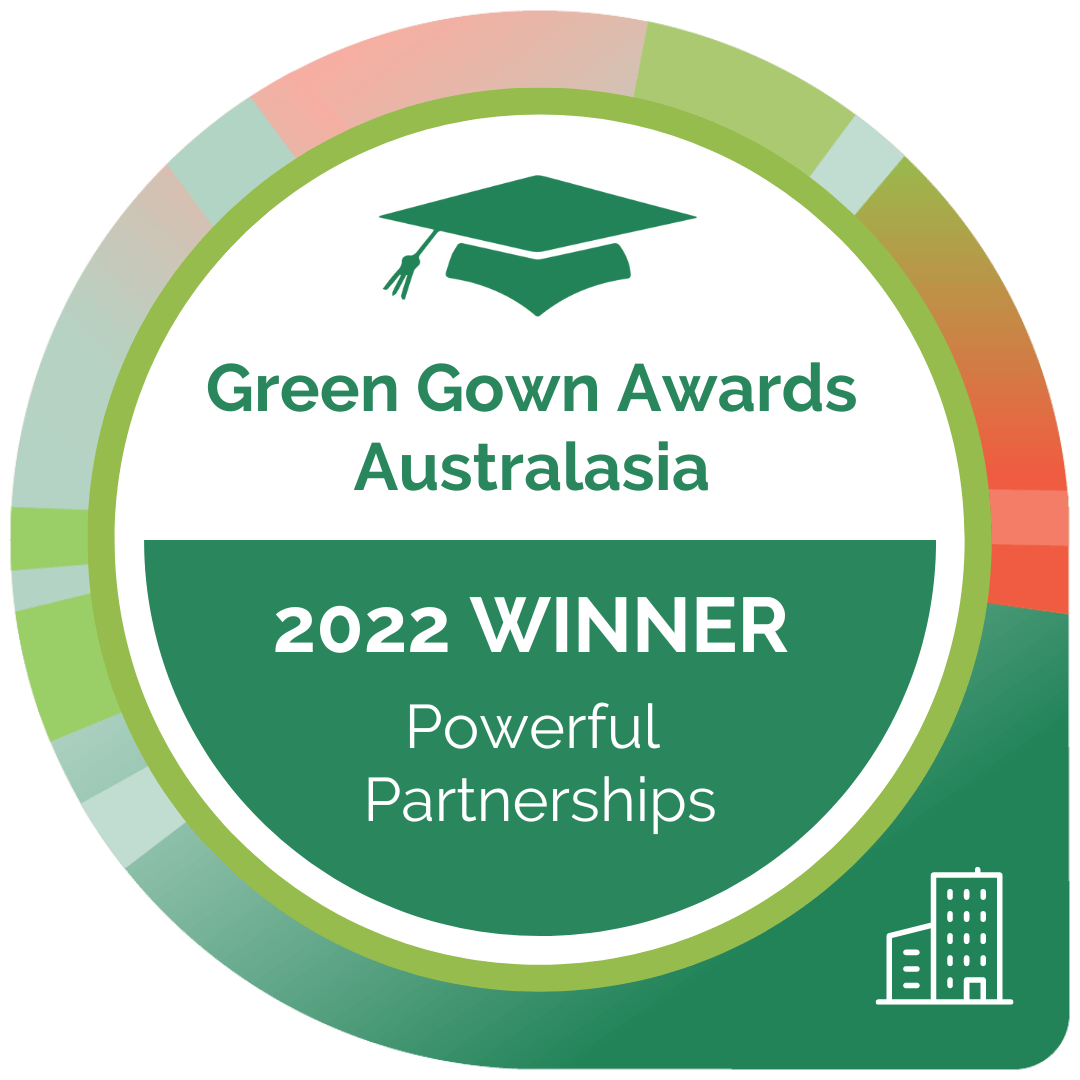
Thinking Global, Acting Local: A decade of partnerships delivering ESD impact across Greater Western Sydney
Hosted by Western Sydney University (WSU), the RCE Greater Western Sydney (RCE-GWS) network is a collaborative, regional, multi-stakeholder educational network delivering place-based, partner-led programs and initiatives for 10-years. As an anchor institution, WSU brings together key internal and external partners to strategically link, leverage and strengthen our ESD work in response to our evolving sustainability challenges – identified as a network – to deliver local impact and aligned under the SDGs.RCE-GWS has 26 regional partners that have delivered 36 initiatives and 45 community events to over 44,000 local and global school students, teachers, community members and university staff and students. Projects have included large-scale biodiversity restoration and climate action engagement projects; EfS capacity building for school teachers through professional development workshops; sustainability awareness school-based initiatives linked to key learning areas of NSW school cross-curriculum priorities; and international youth leadership and empowerment across Asia-Pacific region.
> The initiative
Coordinated at a global level by the UNU-IAS, Regional Centres of Expertise (RCE) on Education for Sustainable Development (ESD) are multi-stakeholder networks of existing formal, non-formal and informal organisations working together to facilitate Education for Sustainable Development (ESD) learning and action in a local setting. RCE Greater Western Sydney (RCE-GWS), auspiced and hosted by Western Sydney University (WSU), is situated in one of Australia’s most rapidly growing regions in the country facing many social, cultural, economic and ecological sustainability challenges. As an anchor institution in the region Western Sydney University brought together key partners to strategically link, leverage and strengthen sustainability work that was already happening in parallel. Endorsed by the UNU-IAS in 2011, RCE-GWS network has built collaborative and innovative place-based programs and initiatives for 10-years. Our 26 external partners include the region’s educational institutions, non-government/non-profit organisations, school networks, community groups, local government, and government agencies. All of our sustainability initiatives are developed by our partners collaboratively and focused on formal and informal education for school students, teachers, university students, staff, academics, and community members. These initiatives are a combination of in-kind, internally and externally funded collaborations, ranging from professional development days for teachers like the “Living Links – Aboriginal Cultural Studies Program” program that development and delivery of quality Aboriginal education across Greater Western Sydney implemented in local primary schools, to large scale whole of region resilience and biodiversity engagement programs such as the “Bee Aware of your Native Bees” program that promote the conservation of native bees by building awareness of their existence and importance as pollinators across Greater Western Sydney and Lithgow with a hugely active national online community.
Our aim is to educate and empower local people to take action in their local places. Our strategy for implementation has been to collectively work to address our regional challenges identified as a network to deliver local impact. Since the launch of the global Sustainable Development 2030 agenda, our areas of focus have been realigned to the global sustainable development goals (SDGs). Our current collaborative initiatives fit under three thematic core areas of impact and are underpinned by the cross-cutting SDG 4, 10 and 17: Urban Heat and Climate Action (SDG 7, 11 and 13); Food Justice and Sustainable Agriculture (SDG 2 and 12); and Urban Biodiversity and Riparian and River Health (SDG 6, 14 and 15).
Our governance structure constitutes the central leadership of the RCE-GWS network and represents the interests of our members, other than just the University. This governance model shares the responsibility of the operations and functions of the larger group, including endorsing new RCE-GWS partners applications, identifying potential projects, and determining key directions based on of widespread input of our larger group (i.e. our core areas of impact above). The host and secretariat is the Sustainability Education team under the Pro Vice-Chancellor Learning Futures, who is responsible for coordinating network meetings, managing grant funding, annual UNU-IAS reporting and embedding the RCE into the institution.
> Environmental and social benefits
RCE-GWS has delivered 36 collaborative, place-based sustainability programs and initiatives and 45 community events, workshops, and forums since the network’s inception in late-2011. This has included regional outreach activities such as Schools for Sustainability fostering environmental stewardship with 60 local high school student leaders in partnership with two local governments; a 2-day Wetlands for the West community workshop attracting over 100 residents, environmental volunteers, industry professionals and Western academics and students; the award-winning, curriculum-based Youth Eco Summit engaging over 10,000 school students and their teachers; a virtual cultural and language exchange program between 2 primary schools (Grose View, Australia and Okayama, Japan) with 200 primary students; and the global RCE SDG Youth Challenge which has mobilised action for the SDGs engaging over 22,000 youth in 12 countries co-led by Western Sydney University. The most recent initiative, the Hawkesbury Resilience Project took a whole-of-area approach delivering a series of forums, workshops and community climate training to over 150 residents through education, engagement and empowerment. Western drew upon the student interns to develop interactive digital resources and key messaging – which included a ‘one-stop-shop’ website, social media campaign, digital marketing campaign and interactive resilience map – and attracted more than an estimated 103,000 digital impressions.
Summary of outputs:
- 13,954 primary and secondary school students across the state, predominately in Western Sydney
- 109 school teachers upskilled
- 206 citizen scientists trained
- 32 seed-funded projects for grassroots initiatives, from installing vegetable gardens at Kingswood High School to a climate café for Hawkesbury and Blue Mountains residents
- 78,000 trees were planted across Western Sydney by corporate volunteers, community volunteers and WSU students
- 45 community events, ranging from native bee workshops to regional wetland forums
- 27,829 global youth and non-youth (community, parents, teachers) engaged in SDG peer-to-peer activities
- 1300 virtual global participants in COVID-19 and ESD related webinars
Outcomes and Benefits:
- Biodiversity restoration and climate action activities across key sites in the Western Sydney region.
- Active engagement and increased sustainability knowledge are linked to place-based action.
- Increased sustainability awareness linked to key learning areas of NSW school cross-curriculum priorities.
- EfS capacity building for NSW School Teachers as professional development, including indigenous knowledge.
- Investment in adaptative capacity leads to increased resilience for local grassroots organisations and schools.
- Active engagement and empowerment across the Asia-Pacific region.
The main obstacle of this work is the additional individual time commitment. We re-evaluated the way in which our activities were structured. Originally, we had six working groups addressing a sustainability challenge, but since 2017 changed to broader themes (core areas of impact). We also reduced the time commitment to two meetings per year, with the option to lead/participate in projects as applicable. We undertake a membership and governance committee refresh every 2-3 years to revitalize the network. The main workload falls to the host/secretariat (Sustainability Education WSU), which is funded by WSU as part of their roles.
> Leadership and engagement
As an endorsed RCE, our remit is in supporting ESD via the Global Action Programme (GAP) and SDGs, specifically through SDG 4.7 ensuring ‘all learners acquire the knowledge and skills needed to promote sustainable development …’. RCE-GWS brings together multiple stakeholders from different educational sectors to collaborate on and mobilise ESD initiatives across Western Sydney. It is unique as it generates a space to collectively contribute, learn, share, and discuss. Within the university, RCE-GWS provides the unique opportunity to initiate and facilitate leadership, engagement and action through discourse, education, and stewardship on the importance of sustainability, the SDGs and their implementation for our region and beyond. We have strong links with the Asia-Pacific RCE network, which in turn has created a number of curricular and co-curricular student opportunities; a platform to demonstrate our leadership by hosting the 11th RCE Meeting and ‘Mainstreaming the SDGs’ Symposium in September 2018; an international youth empowerment project mobilising youth action on the SDGs from 2018 – 2021; and co-delivery of a virtual showcase of best practice on ESD through global seven-part COVID-19 recovery webinar series with two other RCEs (RCE Srinagar, India and RCE East Kalimanta, Indonesia). We have been recognised for our leadership work in addressing local sustainable development challenges for 4 of our RCE-GWS initiatives – The Hawkesbury Riverfarm (2012 RCE Outstanding Flagship Award); The Youth Eco Summit (2013 RCE Outstanding Flagship Award; NSW Green Globe Award for Public Sector Sustainability, 2013; Green Gown Award Australasia for Social Responsibility, 2014); The RCE SDG Youth Challenge – Youth for the Goals (2018 Outstanding Flagship Award); and our intra-RCE collaborative ESD COVID-19 Webinar Series (2020 RCE Acknowledged Flagship Award).
> Significance to the sector
RCE-GWS provided a unique opportunity to WSU to initiate and facilitate leadership, engagement and action through discourse, education and stewardship on the importance of addressing our region’s sustainability challenges and working together on the implementation of local impact through education and partnership. We have worked with local and global partners to implement our activities for 10 years to accelerate and mainstream Education for Sustainable Development (ESD) in our region with impact. We’ve engaged directly with more than 16,000 community members, teachers, and school students, and almost 2,500 WSU staff and students. Our work and learnings are replicable throughout the HE sector and have reached as well into schools, local government, and the community.
> Wider societal impact
By working together to facilitate ESD learning and action across Greater Western Sydney, RCE-GWS is equipping our community and stakeholders with the tools and information they need to make smart and sustainable choices and fostering life-long learning. One such example is the work of our Hawkesbury-Nepean Waterkeeper Alliance. Over the last 12 months we have provided free citizen science training to 151 passionate residents and environmental volunteers to utilize back in their local waterways; worked consultatively to engage with 39 different River organisations/community groups/individuals to form a community voice for our River; created the first Hawkesbury-Nepean River Health Report Card, with accessible data, and combines scientific, social, and cultural data collected by both scientists and citizen scientists; positioned an Indigenous commitment to ‘Water in Ngurra’ at the forefront of the Report Card; provided a digital resource which has had more than 10,000 website views, with peaks during recent flooding events in the Hawkesbury. We employed 8 WSU paid student interns and supported 2 science WIL projects. This commitment to healthy, swimmable, fishable rivers was recognised as part of the THE Impact Rankings with WSU ranking #1 worldwide for SDG 6.
Recent feedback from various RCE-GWS initiatives demonstrates impact, legacy and the life-long learning fostered generated by participants and supporters:
“… the training of 11 community climate leaders which will ensure the objectives of the project can be continued beyond the funding envelope and into the future. As you identified… this training along with the four place-based seed funded community projects are vital to enabling community stewardship, fostering local action, and extending the reach of the project.” – Funder feedback (Hawkesbury Resilience Project, 2022)
“Excellent workshop for building connection, inspiring hope and arming in practical ways to conserve about climate.” – Climate conversation volunteers (Hawkesbury Resilience Project, 2021)
“I learnt so much. I had no idea that waterbugs could be used as an index species. I think and look at creeks in a different way, full of life. It was fun and informative.” – Waterbug ID Workshop attendees (Hawkesbury-Nepean Waterkeeper, 2022)
“The initiatives and insights shared in all webinars could be taken up in other communities and potentially influence policy-making. Through these webinars the RCE community may well have built a foundation for what might evolve as the RCE Global Learning Space on ESD, accelerating the efforts of achieving the SDGs.” – Senior Research Fellow, UNU-IAS (COVID-19 and ESD Webinar Series, 2020)
> Learner/Graduate employer impact
Western Sydney University has acknowledged our responsibility through our teaching and learning to equip the next generation of leaders, innovators and thinkers to understand the global challenges facing the world and the role they can play in rising to meet these challenges. The RCE network has provided authentic transformative learning opportunities Western’s students to engage meaningfully with sustainability. The benefit for our students is in new learning that opens up and challenge mindsets to understanding the global goals and sustainable development from a local and global context regardless of discipline. One of our most recent initiatives was the design and development of our first Hawkesbury-Nepean River Report Card which 2 student interns working closely with members of our Waterkeeper Alliance (a key RCE-GWS project). They reflected:
“This internship gave me valuable experience working in a team with diverse talents. I got to experience utilising my creative skills in an employable format, translating scientific data into a visual narrative accessible to the general public. I have gained a much better understanding of river health, especially the types of things that indicate river health and their impact.” – WSU Undergraduate Student Intern, Bachelor of Communication Arts and Design
“I have gained valuable experience and reaffirmed my passion for data analytics. This project taught me the importance of how the public interacts with the river. It was interesting to analyse the reports of people identifying various species as well as the activities they were doing. I’m grateful for that experience.” – WSU Masters Student Intern, Masters of Data Science

